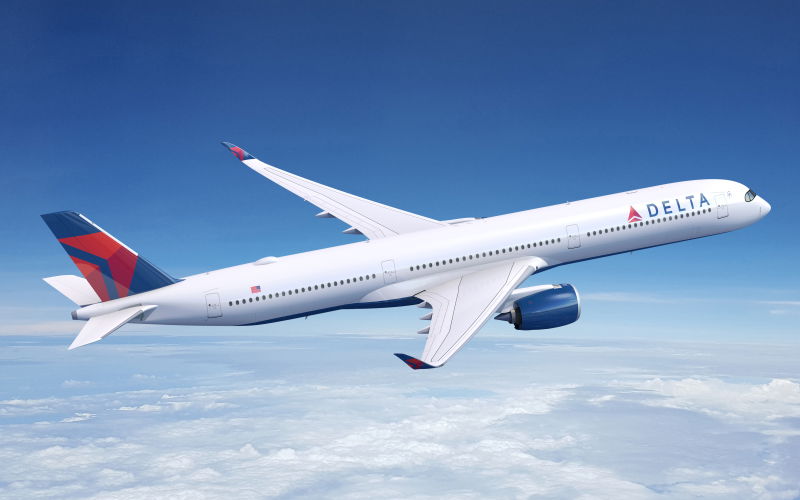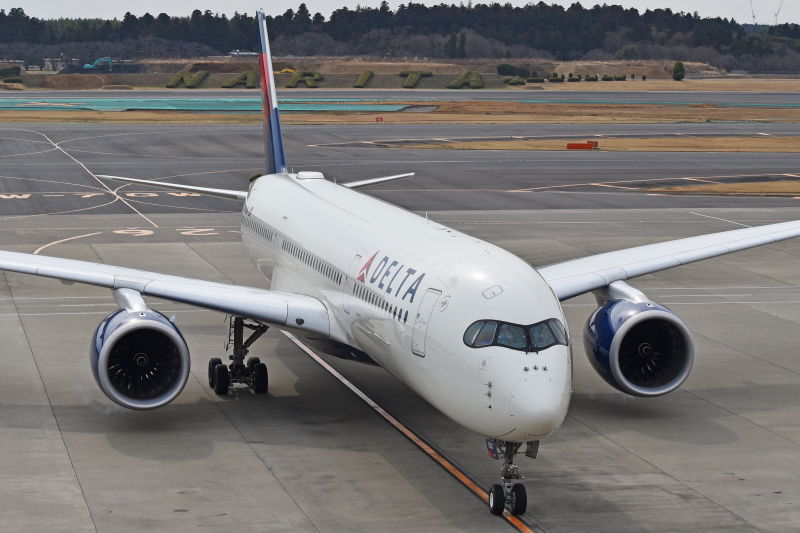Delta Air Lines Orders 20 Airbus A350-1000 Aircraft

Delta Air Lines is continuing its long haul fleet renewal after placing a firm order for 20 Airbus A350-1000 aircraft. The aircraft which are expected to be delivered from 2026 going forward, will join their growing fleet of smaller A350-900 counterparts.
“The A350-1000 will be the largest, most capable aircraft in Delta’s fleet and is an important step forward for our international expansion,” said Ed Bastian, Delta’s chief executive officer. “The aircraft complements our fleet and offers an elevated customer experience, with more premium seats and best-in-class amenities, as well as expanded cargo capabilities.”
The A350s brings a host of improvements including reduced fuel burn, fewer emissions and lower operating and maintenance costs. Like many of its newer models in the Airbus family, the A350-1000 also has a suite of cabin improvements including customizable ambient lighting and Airbus’ Airspace cabins which have higher ceilings, better noise dampening and wider seats.
With Delta favoring Airbus for its widebody fleet renewal, it’s no surprise that they ditched their aging Boeing 777s in favor of taking on LATAM’s A350-900s. Besides this new order, Delta has 28 A350-900s, with 16 more set for delivery. They also have 27 A330-900s, with 12 more expected to join the fleet.

“We are thankful for Delta’s continued confidence in Airbus’ solutions to meet its fleet needs,” said Christian Scherer, Chief Executive Officer of the Commercial Aircraft business, Airbus. “Delta was the first U.S. airline to operate the A350-900, and is doing so with great success. Delta now welcomes the A350-1000, which will open even more opportunities for the airline and its customers. We are proud that our aircraft serve the entirety of Delta’s impressive global network as this stellar airline takes fleet efficiency to the next level.”
International expansion
With these upcoming additions, Delta will most likely be working on expanding operations out of its international joint venture destinations within Europe, as well as Seoul, South Korea. The -1000s also opens the possibility for more expansion into Asian, Pacific and African markets.
Its aging fleet will eventually need replacement
While this order is in no way a direct replacement for its older Boeing widebodies, it would not be a surprise to see these birds also being occasionally swapped in on some of its current routes. With 65 Boeing 767s and 111 Boeing 757s, at some point those older frames will need to be retired.
As a result, they will need to filter in newer models like the A330neos and even some of its A350-900s. However given how well the older Boeings fit in with many of their European destinations, as well as its shorter Pacific routes, they may stay on as long as 2028 before being retired. The 767s in particular are a crowd favorite given their lower density and recently retrofitted cabins.



